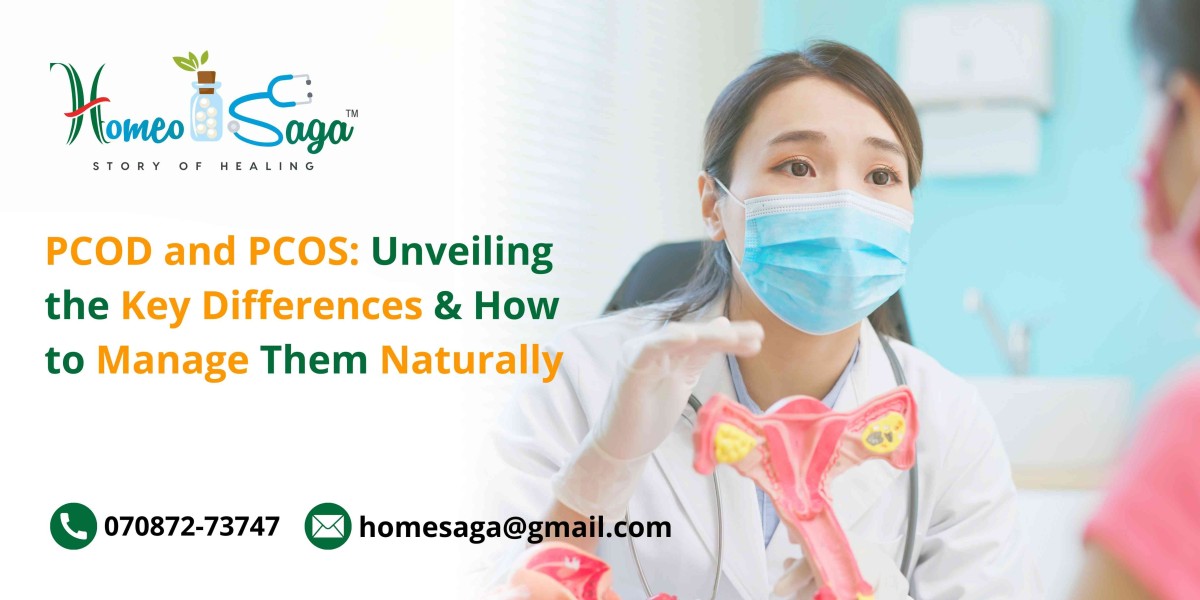Polycystic Ovarian Disease (PCOD) and Polycystic Ovary Syndrome (PCOS) are two common conditions that affect many women, but they often cause confusion due to their similar names. Understanding the differences between PCOD and PCOS is crucial for effective management and treatment. In this blog, we’ll explore what each condition entails, their unique symptoms, and natural ways to manage them.
What is PCOD?
PCOD refers to the presence of multiple small cysts on the ovaries, often leading to hormonal imbalances. While it can cause irregular menstrual cycles, weight gain, and mood changes, the symptoms are generally milder compared to PCOS. Many women with PCOD find that lifestyle changes, such as diet and exercise, can significantly improve their symptoms.
Symptoms of PCOD
- Irregular periods
- Weight gain
- Acne and oily skin
- Mood swings
Causes of PCOD
The exact cause of PCOD is not fully understood, but it is believed to involve hormonal imbalances, genetic factors, and lifestyle choices.
What is PCOS?
PCOS is a more complex hormonal disorder that can lead to severe health complications. Women with PCOS often experience more pronounced symptoms, including irregular periods, excessive hair growth (hirsutism), acne, and fertility challenges. Insulin resistance is also a common issue, increasing the risk of type 2 diabetes and heart disease.
Symptoms of PCOS
- Irregular or absent menstrual periods
- Hirsutism (excessive hair growth)
- Severe acne
- Weight gain
- Infertility
Causes of PCOS
PCOS is influenced by several factors, including hormonal imbalances, genetics, and inflammation.
Key Differences Between PCOD and PCOS
- Symptom Severity: PCOS symptoms are generally more severe and diverse than those of PCOD.
- Cyst Characteristics: Women with PCOS usually have more numerous and larger cysts.
- Metabolic Risks: PCOS is more closely linked to insulin resistance and metabolic syndrome.
- Fertility Issues: Women with PCOS face a higher risk of infertility compared to those with PCOD.
Natural Management Strategies
Managing both PCOD and PCOS can often be achieved through holistic approaches. Here are some effective strategies:
1. Nutrition
A balanced diet is essential for managing symptoms. Focus on:
- Whole Foods: Include whole grains, fruits, vegetables, and lean proteins.
- Healthy Fats: Incorporate sources of omega-3 fatty acids like fish and nuts.
- Low Glycemic Index Foods: Choose foods that stabilize blood sugar, such as legumes and most vegetables.
2. Exercise
Regular physical activity is crucial. Aim for a mix of:
- Aerobic Exercises: Walking, jogging, or swimming.
- Strength Training: Helps improve metabolism and insulin sensitivity.
- Yoga: Enhances flexibility and reduces stress.
3. Stress Management
Managing stress is vital for hormonal balance. Consider:
- Mindfulness and Meditation: Practices that promote relaxation.
- Hobbies: Engaging in activities you enjoy can help reduce stress.
4. Regular Check-Ups
Routine visits to your healthcare provider are important for monitoring hormone levels and overall health. Regular blood tests can help identify insulin resistance and guide treatment plans.
Conclusion
Understanding the differences between PCOD and PCOS is essential for effective management. While both conditions can impact quality of life, they can often be managed through lifestyle changes. By focusing on nutrition, exercise, and stress management, women can improve their symptoms and overall health. Always consult healthcare professionals for personalized advice and support in navigating these conditions.








